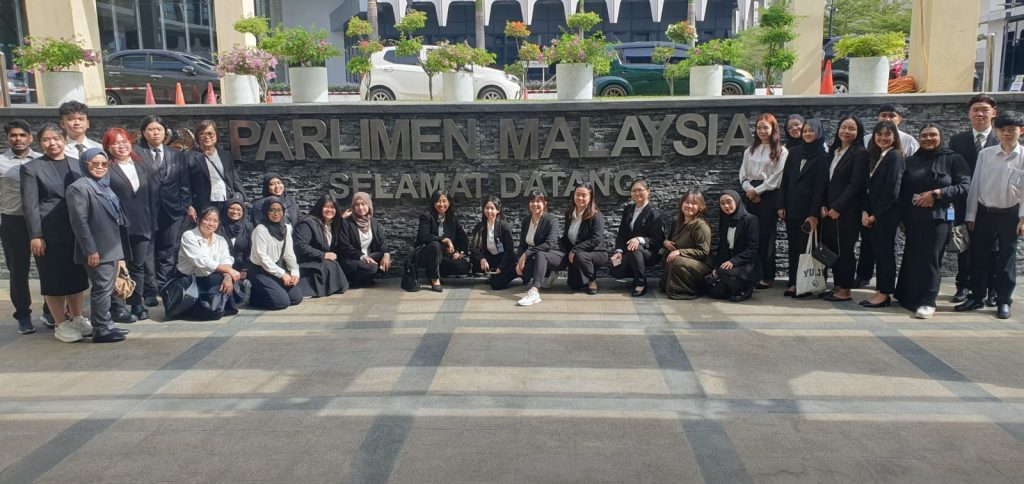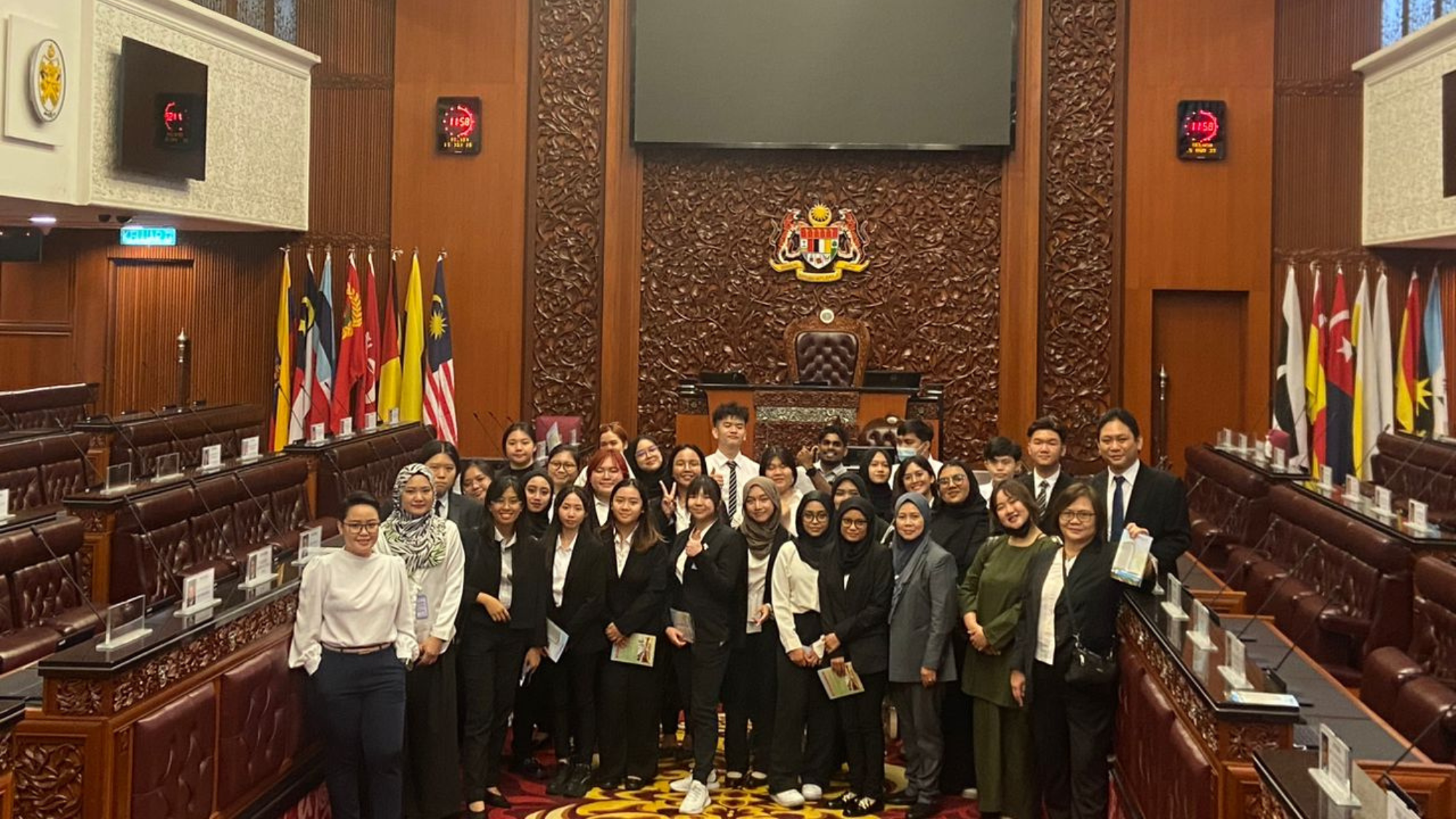SEGi’s law students, in collaboration with the SEGi Moot & Law Society (SMLS) and faculty members, embarked on an insightful field trip to the Malaysian Parliament in Putrajaya. The visit aimed to provide students with a firsthand experience of Malaysia’s legislative process and governance.
The Malaysian Parliament serves as the country’s legislative body, responsible for enacting laws, overseeing government actions, and representing the people’s interests. SEGi’s delegation was guided by Maizatul Anis, Public Relations and Media Communication officer, during the visit.
Here are some key facts about the Malaysian Parliament:
- Bicameral Structure: The Malaysian Parliament consists of two houses – the Dewan Rakyat (House of Representatives) and the Dewan Negara (Senate).
- Dewan Rakyat (House of Representatives): Comprised of Members of Parliament (MPs) elected by the people during general elections. The Dewan Rakyat proposes, debates, and passes laws. It also scrutinizes government actions and policies through questions, debates, and discussions.
- Dewan Negara (Senate): This committee consists of appointed senators who represent the states of Malaysia. The Dewan Negara reviews and provides feedback on legislation proposed by the Dewan Rakyat.
- Legislative Process: Bills are introduced in both houses and go through multiple readings and stages of debate before becoming law. Constitutional amendments require a two-thirds majority in both houses.
- Role of the King (Yang di-Pertuan Agong): As Malaysia is a constitutional monarchy, the King’s role includes giving royal assent to bills passed by both houses before they become law.
- Parliamentary Sessions: The parliamentary year is divided into sessions, with each session opened by the King or by His Royal Highness’s mace, symbolizing the authority of Parliament.
- Public Participation: Parliamentary proceedings are conducted in Malay, and certain sessions allow MPs to question government ministers about policies and actions.
- Oversight and Accountability: The Parliament plays a crucial role in holding the government accountable through established committees that review specific issues and provide recommendations.
The field trip concluded with a group photography session, during which SEGi’s Faculty of Law presented a certificate of appreciation to the Malaysian Parliament for hosting the visit. The hosting officers expressed excitement and delight in welcoming SEGi law lecturers and students.


